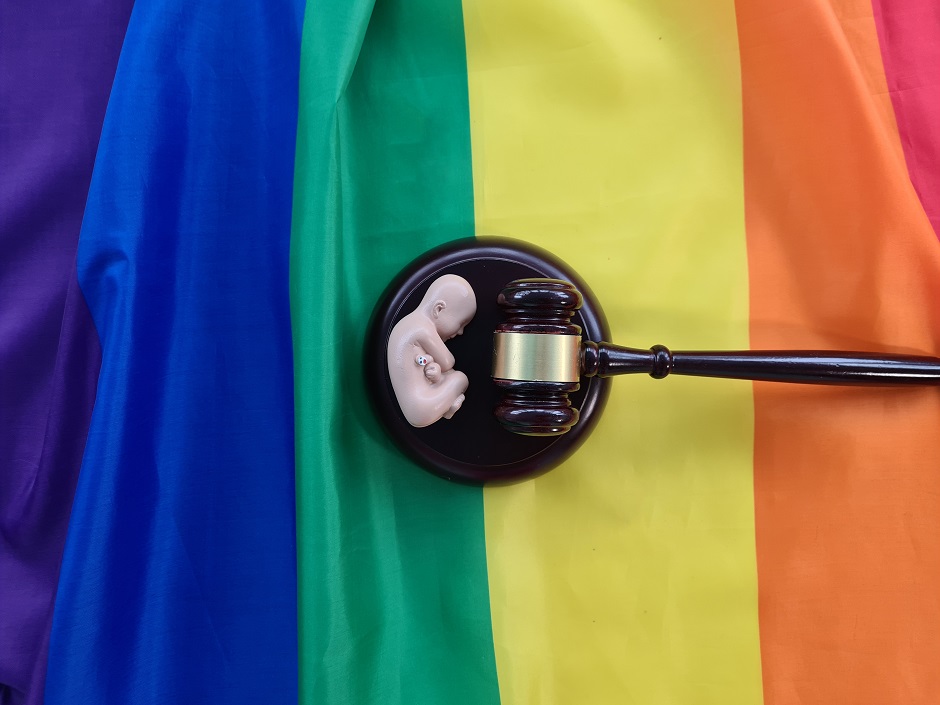Introduction
It’s critical to comprehend the legal framework around surrogacy in New Jersey if you’re thinking about using it as a means of becoming a parent or considering becoming a surrogate there. The legality of surrogacy, types of surrogacy that are permitted, requirements for surrogates and intended parents, surrogacy contracts, parentage orders, adoption considerations, and the use of donor gametes are all covered in detail in this thorough book. This manual seeks to help you understand the surrogacy procedure in New Jersey whether you are a heterosexual couple, a same-sex couple, or an individual.
Gestational surrogacy is permitted in New Jersey as a result of changes made to the state’s surrogacy laws in 2018. These changes offer a framework for the state’s safe and authorised use of gestational surrogacy. It’s vital to remember that traditional surrogacy is challenging to pursue in New Jersey due to obstacles and legal issues. In order to guarantee the protection of the rights and interests of all parties involved, the revisions have created precise criteria for gestational surrogacy.
Types of Surrogacy Allowed
Only gestational surrogacy arrangements are expressly allowed by state law in New Jersey. In gestational surrogacy, an embryo produced through in vitro fertilisation (IVF) is used, even if the surrogate has no genetic connection to the child. The state does not recognise traditional surrogacy, in which the surrogate is a genetic relative of the kid. It’s important to understand the difference between gestational and traditional surrogacy because it affects the parties’ legal rights and obligations.
Surrogacy Agreement and Legal Process
To be legitimate and enforceable in New Jersey, a surrogacy agreement must adhere to certain standards. There are requirements that must be met by the intending parents and the surrogate, such as age limitations and medical and psychological evaluations. The details of the surrogacy relationship, including the surrogate’s consent to the embryo transfer and the intended parents’ acceptance of custody following the baby’s birth, must be set forth in writing and signed by both parties. It is strongly advised that both parties speak with independent surrogacy-specific attorneys to make sure their rights and interests are safeguarded during the procedure.
Compensation for Surrogates
Surrogacy compensation agreements, in which the surrogate receives paid above and beyond reasonable costs, are illegal in New Jersey. Only reasonable costs associated with the surrogacy procedure, such as medical bills, legal fees, and living expenses, can be covered by surrogates. The goal of this regulation is to prevent the commercialization and abuse of surrogacy, ensuring that the people involved’s welfare takes precedence over personal gain.
Parentage Orders
Regardless of their genetic relationship to the child, intended parents in gestational surrogacy arrangements are protected under New Jersey surrogacy rules from being denied the right to a pre-birth parentage order. By virtue of this order, the intended parents are recognised as the child’s legal parents and granted all parental rights and obligations. With a pre-birth parentage order, prospective parents can establish their parental rights without starting new legal processes, streamlining the legal process. The intended parents’ parental rights must normally be established through an adoption procedure in cases of traditional surrogacy, where the surrogate is the biological mother.
Adoption Considerations
The intended parents might have to go through an adoption procedure once the baby is born in circumstances of traditional surrogacy or gestational surrogacy when the surrogacy agreement is unenforceable. By ensuring that the intended parents’ parental rights are legally recognised, adoption gives them the foundational legal protections they need to create a long-lasting parent-child bond. Depending on their particular circumstances, same-sex couples, unmarried couples, and individuals can pursue second-parent adoptions or stepparent adoptions to establish legal parenting in New Jersey.
Donor Egg, Sperm, or Embryo
In gestational surrogacy, the use of donor gametes (egg, sperm, or embryo) has no bearing on the non-biological parent’s ability to acquire a pre-birth parentage order in New Jersey. According to the state’s surrogacy legislation, a gamete donor is not considered to be the biological parent of a kid that was conceived using their genetic material. This clause guarantees that the intended parents will have the chance to establish their legal parentage through the surrogacy procedure, regardless of their genetic relationship to the child. But if donor sperm is used in a conventional surrogacy, it might necessitate further legal analysis and the termination of the donor’s rights.
Same-Sex Surrogacy
Same-sex surrogacy is not specifically covered by any laws or regulations in New Jersey. The state allows same-sex couples and heterosexual couples to both pursue surrogacy. All couples and people wishing to start families through assisted reproduction are subject to the surrogacy laws in New Jersey. However, it is crucial to speak with a surrogacy lawyer with experience in LGBTQ+ family law in order to comprehend the legal procedure and ramifications unique to your circumstance. These lawyers can offer direction and assistance catered to the special requirements of same-sex couples.
Conclusion
Intended parents and surrogates starting this path must be aware of the complexities of New Jersey’s surrogacy legislation. You can handle the surrogacy procedure with more assurance if you are familiar with the legal requirements, contract issues, and parental rights. To ensure compliance with state regulations and safeguard the interests of all parties concerned, it is strongly advised that you speak with a knowledgeable surrogacy lawyer in New Jersey. The significance of striking a balance between the best interests of the child and the rights and well-being of the intended parents and surrogates is reflected in the changing legal environment surrounding surrogacy. Surrogacy can be a feasible and fruitful choice for starting families in New Jersey with the right direction and assistance.





